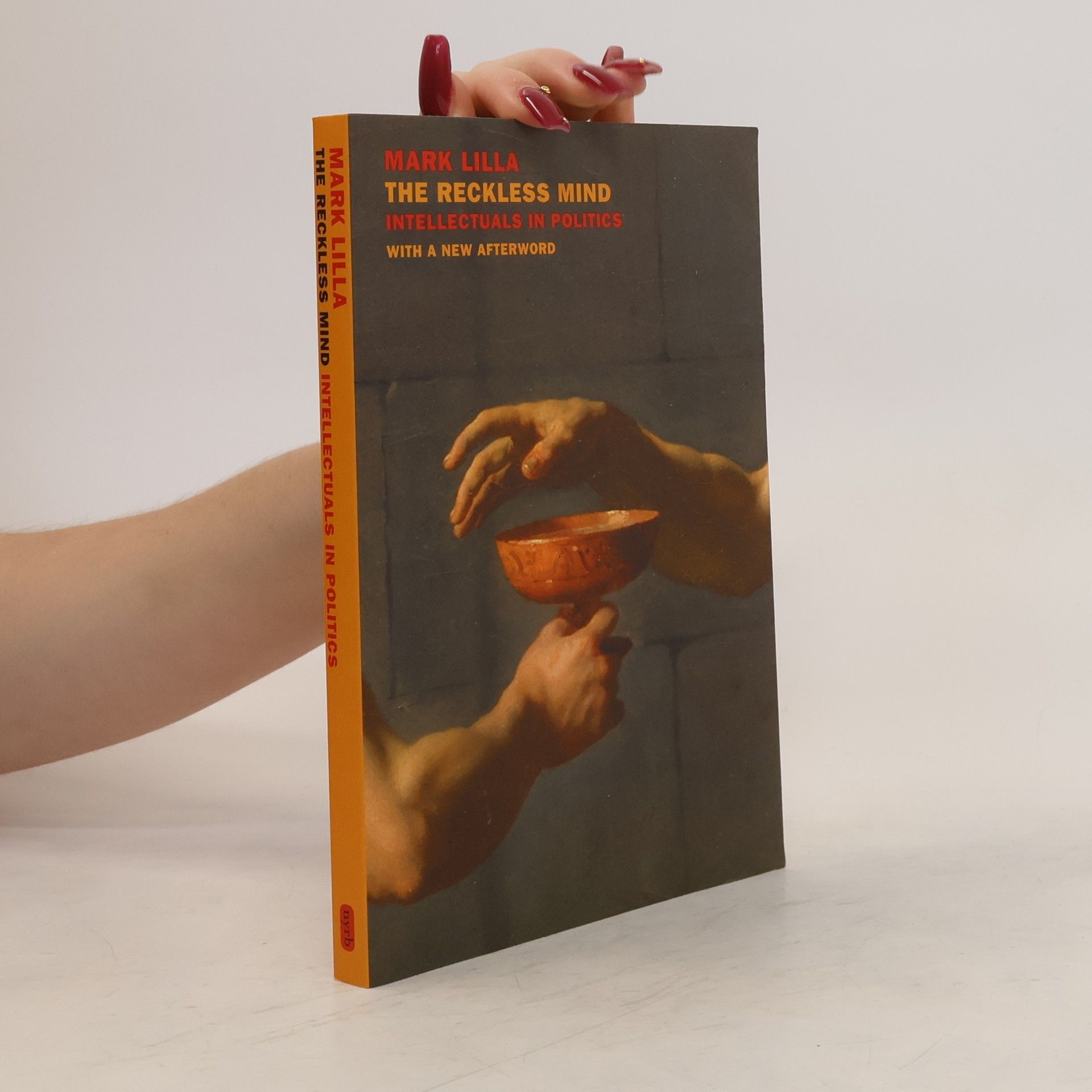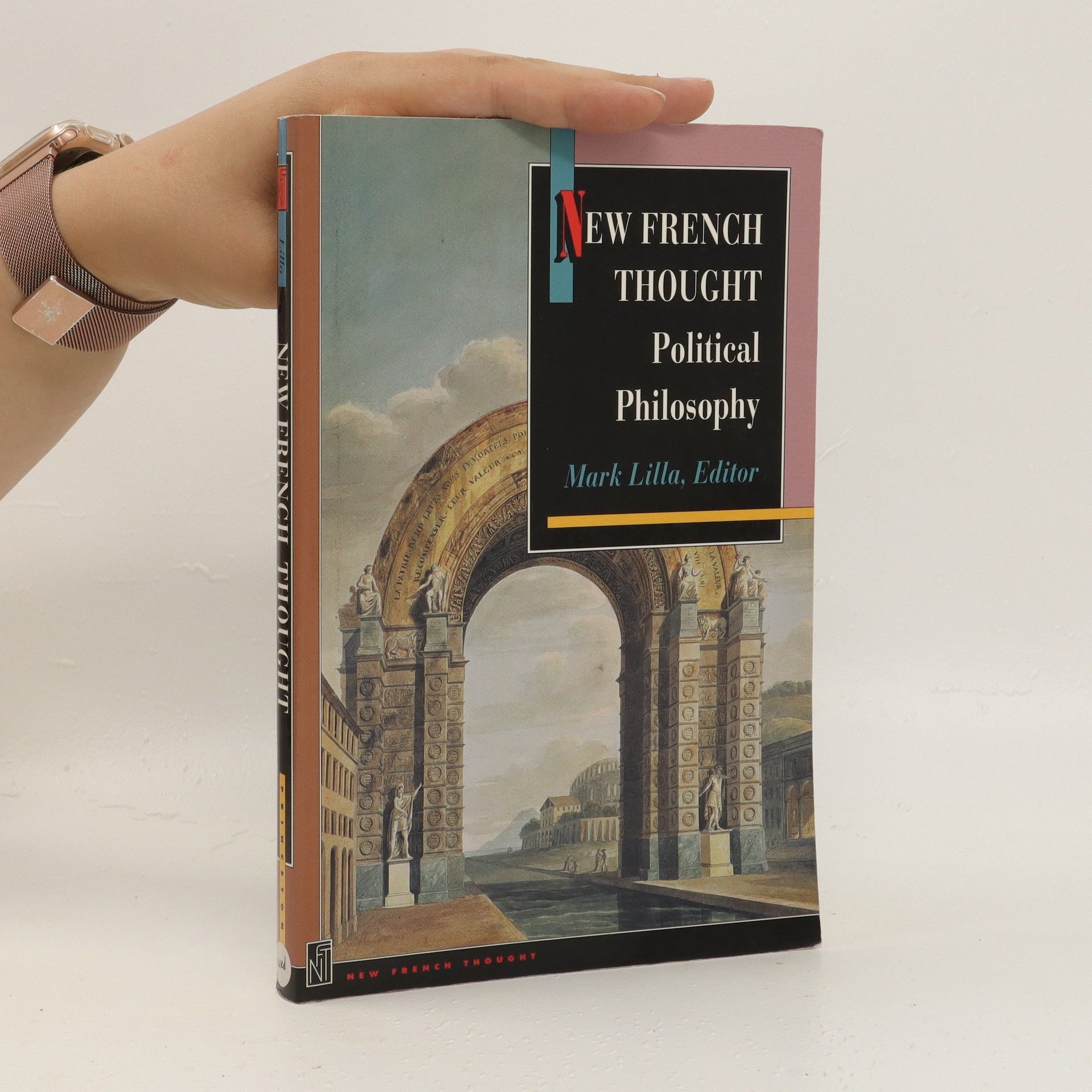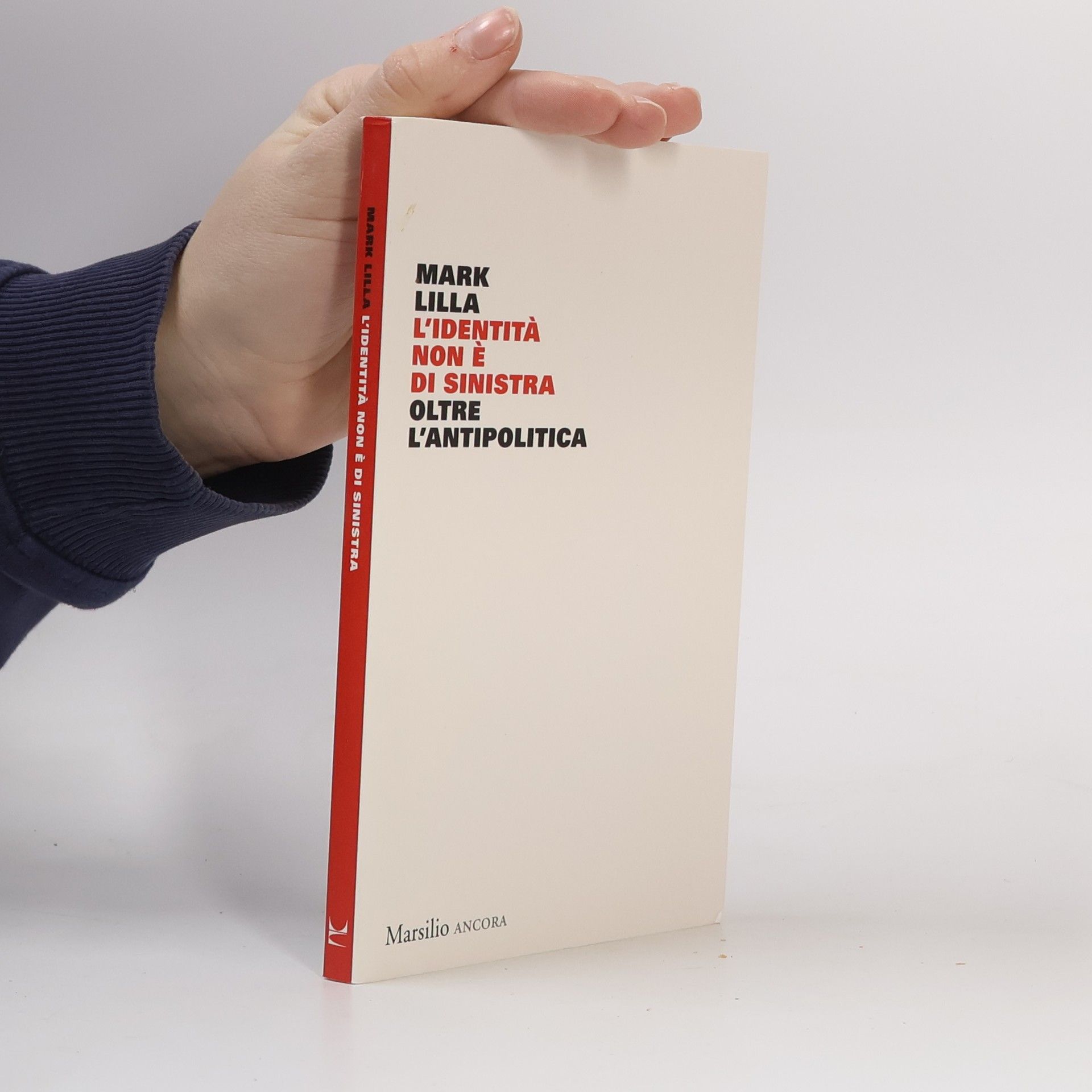This is a collection of essays by young French political thinkers writing in the 1990s. The central theme of the essays is liberal democracy: its nature, its development, its problems and its fundamental legitimacy. French critics of liberal society are also reconsidered.
Mark Lilla Knihy
Mark Lilla je americký politolog a historik idejí, který se soustředí na politickou filozofii a historii liberalismu. Jeho práce zkoumá, jak se politické myšlenky vyvíjely v průběhu času a jak ovlivňují současnou společnost. Lilla se snaží porozumět podstatě liberálního myšlení a jeho budoucnosti v moderním světě. Prostřednictvím svých esejů a knih nabízí pronikavé postřehy do složitých politických a intelektuálních výzev naší doby.






An impassioned and biting critique of the failure of American liberalism.
European history of the past century is full of examples of philosophers, writers, and scholars who supported or excused the worst tyrannies of the age. How was this possible? How could intellectuals whose work depends on freedom defend those who would deny it? In profiles of six leading twentieth-century thinkers—Martin Heidegger, Carl Schmitt, Walter Benjamin, Alexandre Kojève, Michel Foucault, and Jacques Derrida—Mark Lilla explores the psychology of political commitment. As continental Europe gave birth to two great ideological systems in the twentieth century, communism and fascism, it also gave birth to a new social type, the philotyrannical intellectual. Lilla shows how these thinkers were not only grappling with enduring philosophical questions, they were also writing out of their own experiences and passions. These profiles demonstrate how intellectuals can be driven into a political sphere they scarcely understand, with momentous results. In a new afterword, Lilla traces how the intellectual world has changed since the end of the cold war. The ideological passions of the past have been replaced in the West, he argues, by a dogma of individual autonomy and freedom that both obscures the historical forces at work in the present and sanctions ignorance about them, leaving us ill-equipped to understand those who are inflamed by the new global ideologies of our time.
The Shipwrecked Mind
- 145 stránek
- 6 hodin čtení
We struggle to comprehend the reactionary mind, which shapes today’s political landscape. Mark Lilla argues that the reactionary is not merely a conservative; rather, he is a radical figure, disoriented by rapid change and yearning for an idealized past, while fearing an impending catastrophe. The motivations behind reactionary politics are rooted in sophisticated ideas. Lilla explores the foundations of reactionary thought through three twentieth-century philosophers—Franz Rosenzweig, Eric Voegelin, and Leo Strauss—who linked modern societal issues to a rupture in the history of ideas and advocated for a return to earlier philosophies. He also delves into the lasting influence of grand historical narratives of betrayal that have shaped political perspectives since the French Revolution. These narratives serve various, often opposing, purposes and appear in the works of right-wing cultural pessimists, Maoist neocommunists, American theoconservatives, and radical Islamists. While the revolutionary fervor that fueled global movements may have waned, the spirit of reaction remains a powerful historical force. In our current age, the tragicomic nostalgia reminiscent of Don Quixote has morphed into a potent, sometimes dangerous weapon. Lilla illuminates the reasons behind this phenomenon.
Delving into the complexities of human desires, this work examines the yearning for innocence and the allure of ignorance, revealing the profound consequences that accompany these wishes. Through a thoughtful narrative, it challenges readers to reflect on the balance between knowledge and naivety, ultimately inviting a deeper understanding of the human experience.
Im 20. Jahrhundert unterstützten zahlreiche Intellektuelle totalitäre Regime. Wie aber konnten Schriftsteller und Philosophen die Hitlers und Stalins fördern und menschliches Leid billigen? Mark Lillas Fallanalysen von Heidegger, Foucault, Derrida u. a. gehen der Frage nach, wie große Denker zu Philotyrannen werden und finden die Ursache in einer allzumenschlichen Passion: der Faszination der Stärke.
Negli ultimi decenni, l'identità è diventata un campo di scontro politico cruciale, con i diritti delle donne, della comunità gay e di altre minoranze al centro dell'agenda dei partiti di sinistra. Tuttavia, le vittorie di populisti e demagoghi nelle democrazie avanzate mettono in discussione diritti civili considerati scontati. In questo contesto, Mark Lilla sostiene che la sinistra liberale, abbracciando battaglie politiche basate sull'identità, ha abdicato al suo ruolo. Accettando l'individualismo promosso da Reagan e Thatcher negli anni '80, i liberali hanno alimentato un sistema di valori antipolitico, rinunciando al consenso degli elettori per un attivismo frammentario. Questo approccio, pur animato da buone intenzioni, è incapace di affrontare la realtà, essendo allergico ai compromessi necessari nella rappresentanza. Con questa critica, Lilla riapre il dibattito sul futuro della sinistra americana dopo la vittoria di Trump, sfidando i progressisti a superare l'ossessione per l'individualità e a concentrarsi su ciò che ci unisce come cittadini. Invita a immaginare un futuro inclusivo, soprattutto per i più vulnerabili.

